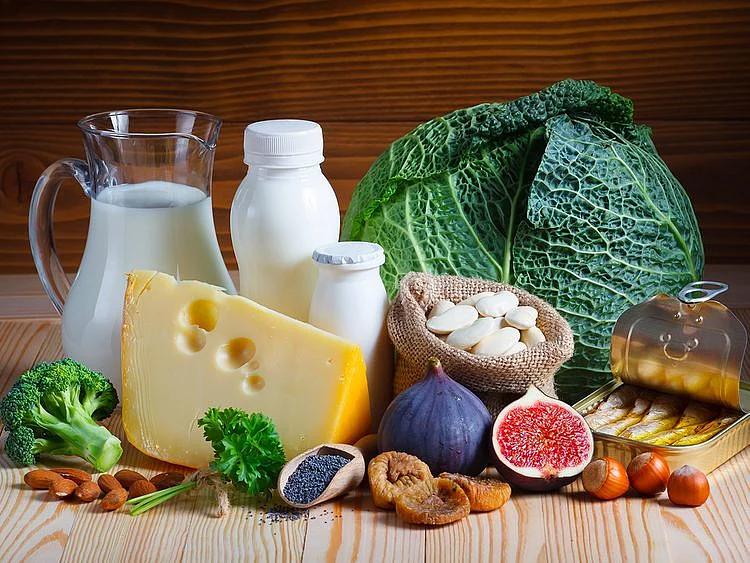Dubai: Despite being known for its year-round sunshine, Vitamin D deficiency remains surprisingly common in the UAE. Experts say this 'sunshine paradox' has more to do with lifestyle than location and that a balanced diet plays a key supporting role in keeping levels healthy.
Why Vitamin D matters
Vitamin D is often called the 'sunshine vitamin' because our skin naturally produces it when exposed to sunlight. It helps the body absorb calcium, which keeps bones strong, and supports muscles and immunity. But as Jassera Maniparambil, Clinical Dietician at Aster Clinic, Bur Dubai, explains, “Many residents spend most of their time indoors or avoid direct sunlight because of the intense heat. This reduces natural Vitamin D synthesis in the skin.”
That means even in a country where the sun shines almost every day, many people aren’t getting enough Vitamin D the natural way.
The limits of diet alone
According to Dr. Rauan Alashkar, Clinical Dietician at Medcare Hospital Al Safa, “Diet alone usually provides only 10–20 per cent of daily Vitamin D needs.” In other words, while food can help, it’s rarely enough without some sunlight or supplements. Routine blood tests every 6–12 months can help track levels and catch deficiencies early.
In a study by National Institutes of Health (2025), foods that offer 20 per cent or more of the daily value (DV) are considered rich sources of a nutrient, though those with lower percentages still play an important role in maintaining a balanced diet.
Some foods, however, do make a meaningful difference. “Salmon, sardines, egg yolks, liver, and mushrooms exposed to UV light are among the best natural sources,” says Dr. Alashkar. Many everyday items in UAE supermarkets, like milk, plant-based milks, yogurts, and breakfast cereals are also fortified with Vitamin D, meaning the nutrient is added during production.
Jassera adds, “Good local sources include oily fish like sardines, salmon, and tuna; egg yolks; and fortified foods. Traditional carbohydrate-rich foods such as rice, bread, and lentils contain little to no Vitamin D, so they need to be complemented with fortified or animal-based sources.”
How can you cook smart?
Vitamin D isn’t as fragile as some vitamins, but high heat can still cause a loss. “Gentle cooking methods, such as baking, steaming, or poaching help preserve more vitamin D than deep-frying or overcooking,” Jassera explains. For example, lightly baking salmon or poaching eggs keeps their nutritional value higher.
Recognising the signs of deficiency
The red flags of Vitamin D deficiency don't show themselves immediately. “Early signs can be subtle,” Jassera notes. “Common symptoms include fatigue, low mood, muscle weakness, bone pain, and frequent illness due to reduced immunity.” Since these can overlap with other conditions, both experts recommend regular blood tests for confirmation rather than self-diagnosing.
Tips for busy people
Students and working adults often struggle to maintain healthy habits, but small changes add up. Jassera suggests simple swaps: “Choose fortified milk or yogurt with breakfast, add eggs or tuna to salads or sandwiches, and include grilled fish in weekly meals.”
Dr. Alashkar adds that those with special diets, such as vegans or lactose-intolerant individuals can “use fortified products, vegan Vitamin D supplements, and get safe sun exposure daily.”
What helps Vitamin D work best?
Vitamin D doesn’t act alone. Dr. Alashkar highlights several nutrients that improve how the body absorbs and uses it:
Healthy fats like olive oil, avocados, nuts, and fatty fish
Calcium, which works alongside Vitamin D for bone health
Magnesium, needed to activate Vitamin D in the body
Zinc and Vitamin K₂, which support bone and immune functions
Simply pairing Vitamin D–rich foods with healthy fats for instance, drizzling olive oil over a tuna salad helps the body make the most of it.
The takeaway
In a country where the sun blazes nearly all year, it’s easy to assume Vitamin D deficiency shouldn’t exist yet it does. Limited sun exposure, indoor lifestyles, and diets low in Vitamin D–rich foods all play a role. The good news? With mindful food choices, gentle cooking, and short daily doses of sunlight, maintaining healthy Vitamin D levels is completely achievable.
As Jassera puts it, “Combining small, consistent habits makes a meaningful difference over time.”
Network Links
GN StoreDownload our app
© Al Nisr Publishing LLC 2026. All rights reserved.
